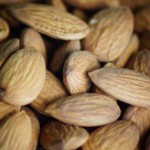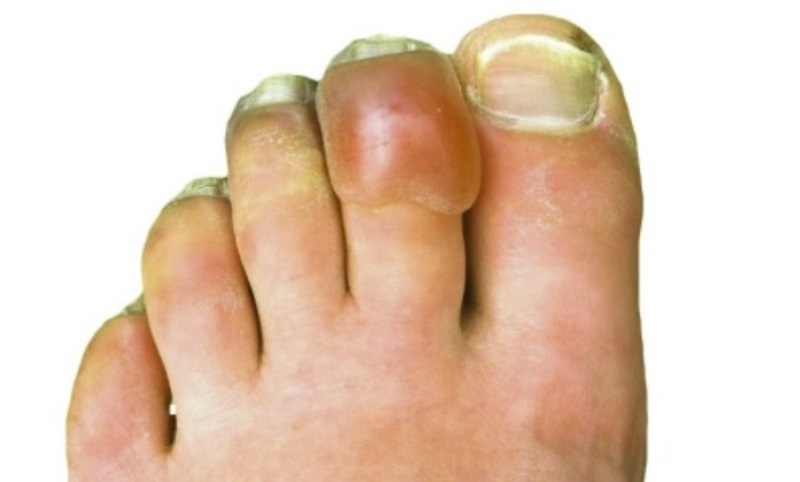Date or date palm is a flowering plant species that is primarily cultivated for its edible sweet fruit. Dates have been very popular in the Middle East and the Indus Valley for thousands of years. Archaeological evidence suggests that dates have been around in eastern Arabia since 6000 BCE. What is now Iraq, seems to be the origin of these fruits. They have been cultivated since the time of the ancient Egyptians and the Mesopotamians, possibly as far back as 4000 BCE. It is believed that ancient Egyptians made date wine and consumed it, while also eating them at harvest. In later times, traders spread these sweet fruits around norther Africa, South West Asia, and Spain.
Dates come in many different varieties, based on where they were cultivated in. Roughly, there are about 30 different kinds of dates found all over the world, but they fall under three broad types: soft, semi-dry, and dry. This differentiation is primarily made according to the glucose, fructose, and sucrose content in each.

Image source: Google, copyright-free image under Creative Commons License
Dates can be eaten fresh, or dried, those resembling raisins or plums. It doesn’t matter how you consume them, dates are as beneficial fresh, as they are dried. Another popular way of consuming dates is to mix its syrup with milk or yogurt, and drizzling it on top of your toast.
Suggested read: All you need to know about combating anemia using home remedies
Types of dates
The dates cultivated in the controversial and often-volatile Gaza Strip is the most coveted form around the world. They are exceptionally red and sweet, making them all the more alluring. The other popular and widely known varieties include:
- Zaghloul – with a dark red skin, is longish in form, and is found exclusively in Egypt;
- Sukkary – with a dark brown skin and soft flesh, is uniquely sweet, and is found in Saudi Arabia;
- Khadrawy – with a dark skin and soft flesh
Nutritional facts about dates

Image source: Pixabay, under Creative Commons License
Dates are believed to provide relief from anemia, heart problems, diarrhea, constipation, intestinal disorders, and many other health conditions. They are a rich source of vital minerals, vitamins, and dietary fiber too. So dates are extremely beneficial for your health.
Per 100g serving of dates, they provide 282kcal of energy, and all these nutrients:
- 75g of carbohydrates
- 63g of sugars
- 8g of dietary fiber
- 3g of protein
- 20g of water
- Vitamin B6 – 13% of daily value
- Vitamin B5 – 12% of daily value
- Vitamin B3 – 8% of daily value
- Vitamin B2 – 6% of daily value
- Vitamin B1 – 5% of daily value
- Vitamin B9 – 5% of daily value
- Vitamin K – 3% of daily value
- Potassium – 14% of daily value
- Manganese – 12% of daily value
- Magnesium – 12% of daily value
- Phosphorus – 9% of daily value
- Iron – 8% of daily value
- Calcium – 4% of daily value
- Zinc – 3% of daily value
Health benefits of dates
Dates contain a whopping 63g of sugar per 100g serving, and they aren’t exactly nutritional powerhouses like other some other foods like almonds or acai berry, but they still offer numerous health benefits. Let’s take a look at some of the health benefits of dates.
1. Dates promote digestive health.
Dietary fiber is essential for a healthy colon, along with making bowel movements regular. Dates contain both soluble and insoluble fiber, which help in cleaning out the gastrointestinal system, which allows the colon to work more efficiently. A health colon and a sufficient amount of fiber in your diet are connected to reducing the risks of colon cancer, colitis, and hemorrhoids.
2. Dates prevent constipation.

Image source: Google, copyright-free image under Creative Commons License
Dates could be termed a natural laxative due to the high fiber content in it. They contain high levels of soluble fiber, which makes your bowel movements healthy, thereby allowing a comfortable passage of food through the colon. This, in essence, relieves constipation and its related painful symptoms.
3. Dates are anti-inflammatory.
Being rich in magnesium, dates contain excellent anti-inflammatory benefits. Inflammation is what causes arterial walls to thicken, a precursor to plaque buildup. Sufficient magnesium intake should help reduce this inflammation. In essence, dates are effective in lowering the risk of cardiovascular disease, Alzheimer’s disease, arthritis, and other health issues that are the direct consequence of unchecked inflammation.
4. Dates lower blood pressure.
Again, magnesium is known to aid in lowering blood pressure, which is found in abundance in dates. Potassium, another important mineral found in dates, is known to help in the proper functioning of the heart.
5. Dates promote bone health.

Image source: Google, copyright-free image under Creative Commons License
Dates contain significant amounts of minerals, which are crucial for bone strengthening and fighting off debilitating bone-related diseases like osteoporosis. Plus, dates also contain selenium, copper, magnesium, and manganese, the vital nutrients that play an essential role in healthy bone development and strength, especially as people age and their bones start to weaken gradually.
Suggested read: 14 effective home remedies for postponing periods
6. Dates help combat anemia.

Image source: Google, copyright-free image under Creative Commons License
Anemia is caused by a deficiency of iron in the blood, and dates contain significant amounts of iron to make them highly beneficial in fighting off anemia. Not only do dates help combat anemia, they also help by increasing overall energy and strength, lowering feelings of fatigue, exhaustion, and sluggishness.
7. Dates help in a healthy pregnancy.
Dates contain folates, which are given to pregnant women as supplements, because they are healthy and vital for a mother-to-be and her unborn child. Instead of opting for artificial supplements, consuming dates during pregnancy is a more natural way of ingesting the essential nutrient.
8. Dates prevent allergies.
Dates contain organic sulfur, and it’s not a mineral to be commonly found in several foods. However, organic sulfur is beneficial to your health, in that it helps reduce allergic reactions and seasonal allergies like Seasonal Allergic Rhinitis (SAR). If you suffer from seasonal allergies, then including dates in your diet is a natural way of combating the effects of these allergies.
9. Dates help in natural weight gain.

Image source: Google, copyright-free image under Creative Commons License
Dates are rich in natural sugars, proteins, and other essential vitamins and minerals, which make them an essential part of a healthy, balanced diet. If you’re looking to gain weight naturally, then dates are your best bet. Dates, consumed with cucumber paste, help keep your weight at a normal, healthy, balanced level.
10. Dates are natural energy boosters.
Being high in natural sugars – glucose, fructose, and sucrose – dates are a perfect snack when you’re feeling low on energy. They give you an almost immediate burst of energy, and is a perfectly health snack to nibble on between meals.
11. Dates promote nervous system health.
B-vitamins and minerals like potassium are primarily essential for a healthy nervous system. Since all of these are found in abundance in dates, they are ideal for boosting nervous system health and its functionality. Potassium, in particular, aids in promoting a healthy and responsive nervous system, while also improving the alertness and speed of brain function, thereby making dates a wonderful fruit that older people should consume regularly.
12. Dates help prevent alcohol intoxication.

Image source: Pixabay, under Creative Commons License
One of the most common remedies used for alcohol intoxication is dates. Not only will you feel sober quickly, it will also help relieve the symptoms of a hangover. For best results, soak them in water the previous night, and eat them the next morning to relieve hangover symptoms.
13. Dates help in alleviating diarrhea.
Dates are rich in potassium, which is known to be an effective way to control diarrhea. Since dates are easily digestible and are rich in soluble fiber, they help alleviate chronic diarrhea by promoting normal, healthy bowel movements.
14. Dates improve your skin.
The vitamins found in dates are essential in promoting healthy skin, by helping keep its elasticity intact, and smoothening out wrinkles or any other skin problems. Plus, dates have anti-aging properties, while also helping prevent the accumulation of melanin in the body.
15. Dates help prevent abdominal cancer.
Dates have been believed to lower the risk and impact of abdominal cancer, since they work as a tonic for all age groups. The legitimacy of this claim needs to be supported by medical research, but for all intents and purposes, dates do offer numerous health benefits.
Suggested read: 14 superb home remedies that help you put on weight naturally
How to consume dates
Dates can be consumed fresh, dried, or semi-dried, all of which are equally beneficial. They also make an excellent breakfast snack, or included in cereals and porridges. Also, date syrup can be used as a sugar substitute by stirring it in juices or other beverages as a natural sweetener. Date palm can also be used to produce jaggery, which can be used to sweeten black coffee. In addition, dried dates can be included in breads, cakes, and other baked goods and dishes.
These are all the health benefits of dates, and all the reasons why you should include them in your daily food intake. The next time you go grocery shopping, don’t forget to put a packet of dates in your basket! Ciao!
Featured image source: Google, copyright-free image under Creative Commons License













